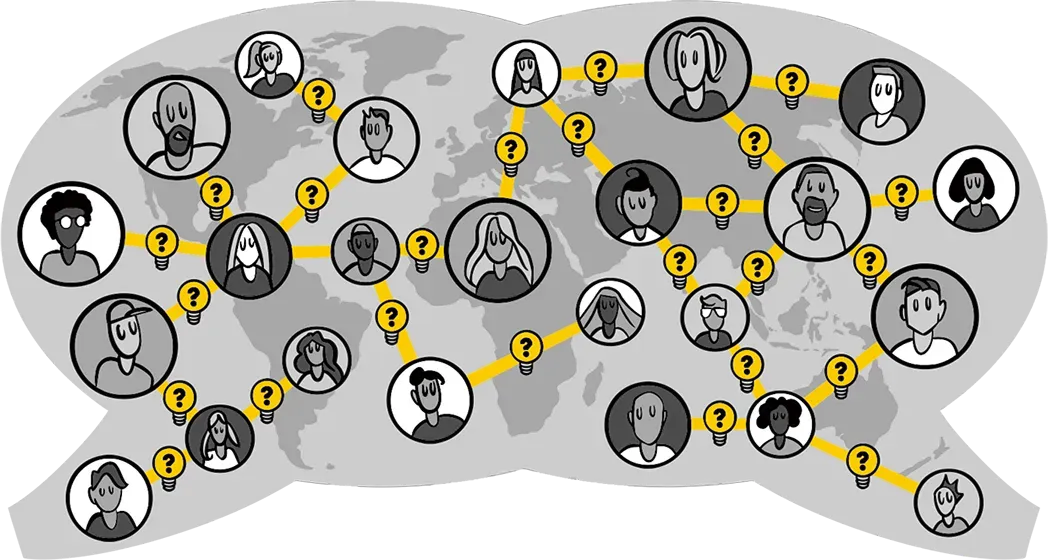Engaging with Medical and Vaccine Hesitancy
Using Street Epistemology to Build Trust and Address Concerns Constructively

Medical mistrust and vaccine hesitancy are complex issues that often arise from fears, misinformation, and deeply held beliefs. Engaging with these topics in a respectful, non-confrontational way is crucial for fostering open dialogue and promoting better understanding.
Street Epistemology (SE) offers powerful tools for navigating these discussions. By asking thoughtful questions, exploring assumptions, and encouraging reflection, SE practitioners can help individuals reconsider their positions on vaccines and medical treatments without hostility or coercion. This approach helps build rapport and trust, encouraging more meaningful and productive conversations about health-related concerns. Learn more about fostering these skills through SE resources and techniques.
Find the Best Fit for You
You've landed on a page about Street Epistemology, a way of helping people reflect on the quality of their reasoning through civil conversation. Take our free self-paced course called Navigating Beliefs or learn more about the organization behind these world changing projects.

Street Epistemology
International
The organization behind the development of the Navigating Beliefs course, supporting Street Epistemology's practice and offering resources for critical thinking and civil conversation.
Building Empathy and Encouraging Reflection

Tools and Techniques for Addressing Vaccine Hesitancy
When engaging with vaccine-hesitant individuals, empathy plays a critical role in maintaining a constructive dialogue. Listening actively and acknowledging the person's concerns without judgment creates an environment where mutual respect can flourish. This allows individuals to feel heard and more open to reconsidering their stance on vaccines.
SE encourages us to explore the assumptions behind vaccine fears and help people reflect on their beliefs about vaccine safety, side effects, and the role of public health policies. This method of inquiry allows individuals to critically examine the information they have and the sources from which it came. Discover additional strategies for meaningful conversations through SE coaching resources.
Addressing Vaccine Myths and Misinformation
One of the most effective ways to engage with vaccine-hesitant individuals is by challenging myths and misinformation respectfully. This involves asking questions that prompt reflection, such as, "What evidence do you have for that belief?" or "How did you come to this conclusion?" These questions encourage individuals to examine the sources of their information and consider whether their beliefs are supported by reliable evidence.
SE practitioners are skilled in helping others navigate these conversations without confrontation. By applying critical thinking tools and exploring the reasons behind beliefs, SE provides a framework for addressing vaccine misinformation constructively and collaboratively. This method fosters understanding, reduces defensiveness, and supports more open dialogue. Learn about these strategies in SE workshops designed to enhance your conversational skills.

Free Learning Course to Engage with Vaccine Hesitancy
Ready to learn how to have productive, respectful conversations about vaccines? The Navigating Beliefs course offers a comprehensive, easy-to-understand way to learn Street Epistemology, providing the tools you need to engage with vaccine-hesitant individuals thoughtfully and effectively.
GO TO COURSE ➔



